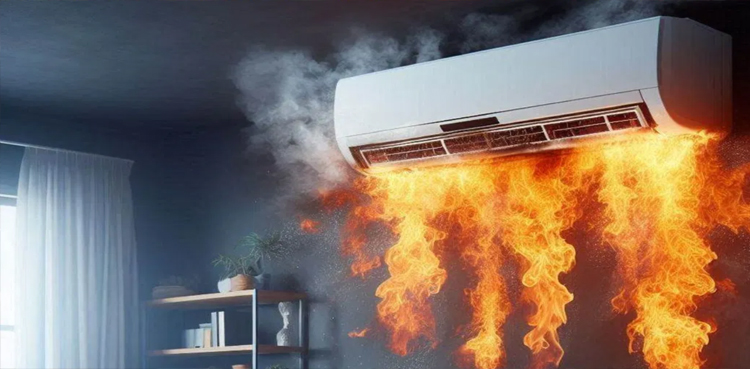
The use of air conditioners in homes, workplaces, and other locations is growing as the temperature rises at an alarming rate.
Recently, there have also been numerous reports of AC blast incidents. However, why are these air conditioners, which are meant to make summertime more bearable, catching fire? Let’s investigate the cause of this risk at your house and what you may do to reduce it.
Causes
- Overuse: We are using our air conditioners excessively and beyond their capacity because the temperature is increasing so quickly. This leads to the AC units overheating, which puts strain on the compressor. And finally, a fire results from this.
- Gas leaks: The refrigerant gas in the air conditioners is what keeps them cool. AC gags frequently have leaks. Your air conditioner will not operate at its best if there is a gas leak, which will increase the strain on the unit. This could then result in the AC unit overheating and catching fire.
- Voltage Fluctuation: Voltage fluctuation is a significant contributing factor to AC fires. Frequent voltage changes in your location have the potential to harm various electrical components, including the compressor in your air conditioner. This may result in an AC overload, which may then heat up and perhaps start a fire.


How to prevent ACs from catching fire?
- It’s crucial that you give your air conditioners regular rests every two to three hours. It must cool down in order to avoid becoming too hot.
- Having routine maintenance and inspections performed to ensure there are no leaks or obstructions is also crucial.
- You can install a voltage stabilizer if there are frequent voltage changes in your neighborhood.
- To prevent overloading, it’s also crucial to confirm that your air conditioning equipment is linked to a specific electrical circuit.
- Verify that a professional installed your AC correctly.
You may avoid AC blasts and guarantee a secure and comfortable cooling experience by paying attention to these pointers.
from Science and Technology News - Latest science and technology news https://ift.tt/x6NXvo0